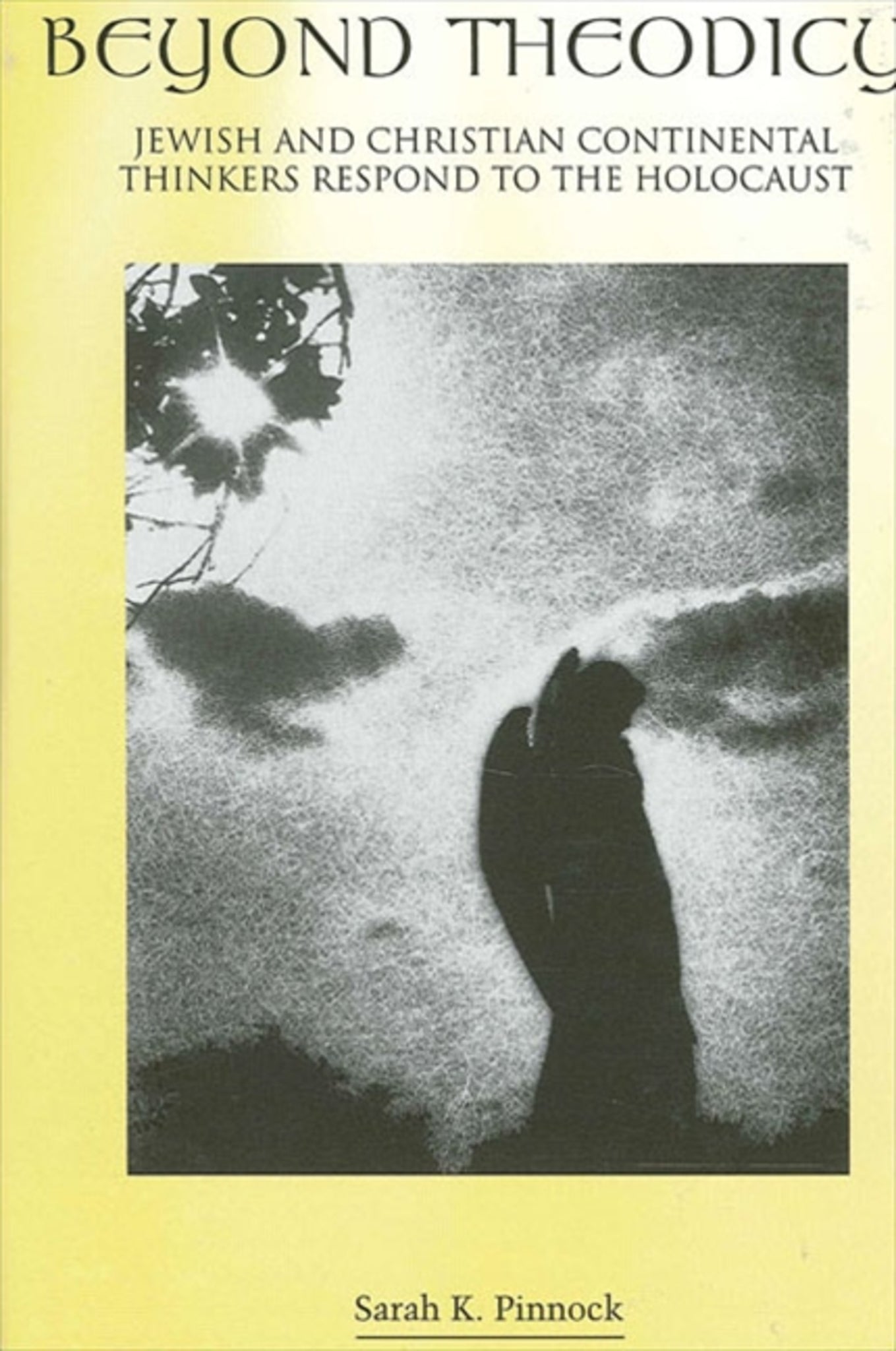We're sorry. An error has occurred
Please cancel or retry.
Beyond Theodicy

Some error occured while loading the Quick View. Please close the Quick View and try reloading the page.
Couldn't load pickup availability
- Format:
-
26 September 2002

Explores the work of post-Holocaust Jewish and Christian thinkers who reject theodicy—arguments explaining why a loving God can permit evil and suffering in the world.
Beyond Theodicy analyzes the rising tide of objections to explanations and justifications for why God permits evil and suffering in the world. In response to the Holocaust, striking parallels have emerged between major Jewish and Christian thinkers centering on practical faith approaches that offer meaning within suffering. Author Sarah K. Pinnock focuses on Jewish thinkers Martin Buber and Ernst Bloch and Christian thinkers Gabriel Marcel and Johann Baptist Metz to present two diverse rejections of theodicy, one existential, represented by Buber and Marcel, and one political, represented by Bloch and Metz. Pinnock interweaves the disciplines of philosophy of religion, post-Holocaust thought, and liberation theology to formulate a dynamic vision of religious hope and resistance.


"Readers will appreciate the careful exposition … the crisp distinctions … and Pinnock's own astute theological judgments." — Religious Studies Review
"Pinnock's study of post-Holocaust (anti-) theodicy is a useful discussion for students and scholars alike. As a comparative study, this book is an important contribution to Christian-Jewish relations, explicating the convergence and difference of Jewish and Christian (anti-) theodicies." — Journal of Religion and Society
"I like the fact that the book extends the sorts of questions being asked by some Anglo-American philosophers of religion/theologians to European authors. The questions surrounding the legitimacy of theoretical theodicy as done by theologians do have some European analogues, but this book makes this much more explicit. The book is careful and competent in its exposition and in its nuanced judgments about the preferability of 'political' over 'existential' approaches to confronting and coping with evils. Its chapter on cold and warm stream Marxism is especially clear and unexpectedly useful." — Terrence W. Tilley, author of The Evils of Theodicy
"This book works very well as an introduction to the various figures studied—Marcel, Buber, Bloch, and Metz—and as an introductory survey of the practical approach to questions of suffering and injustice." — Kathryn Tanner, author of Jesus, Humanity and the Trinity: A Brief Systematic Theology
Abbreviations
Preface
1. TYPES OF APPROACHES TO HOLOCAUST SUFFERING
Practical Responses as Alternatives to Theodicy
Theoretical Theodicy
Continental Alternatives to Theodicy
Kant's Practical Turn
From Theoretical Theodicy to Practical Faith
Hegel's Hubris: Theodicy Revived
Hegel as Prototypical Target of Critique
2. EXISTENTIAL ENCOUNTER WITH EVIL
Gabriel Marcels Response to Suffering as a Trial
Problem and Mystery in Philosophy
Marcel's Objections to the Theodicy Problem
Faith and Hope: The Discovery of Meaning in Suffering
Relation to the Thou: Availability and Fidelity
Suffering as a Trial
Hope, Transcendence, and Immortality
Acceptance of Suffering
The Limitations of Marcel's Approach after Auschwitz
3. DIALOGICAL FAITH
Martin Buber's I-Thou Response to Suffering and Its Meaning
The Dichotomy between I-It and I-Thou Attitudes
God-Language within the Limits of I-Thou Relation
A Narrative Faith Response to Suffering
Hasidic Narratives of Suffering and Redemption
The Book of Job
The Eclipse of God and the Holocaust
Post-Holocaust Faith in God
4. MARXIST THEORY AND PRACTICE
Scientific and Humanist Marxism
Marx's Materialist Method
Materialist Analysis of History
Social Class and Suffering
Ideology Critique
The Cold Stream: Scientific Marxism
The Warm Stream: Humanist Marxism
Modified Materialism
Hope: The Rejection of Determinist Teleology
5. FAITH AS HOPE IN HISTORY
Ernst Bloch and Political
Post-Holocaust Theology
Suffering in History: Against Teleological Theodicy
Hope as Political Vision and Real Possibility: Resistance to Suffering
Religious Faith as the Praxis of Hope
Apolitical Christianity and Political Faith
Moses and Job: Heroes of the Hebrew Bible
Jesus and the Immanence of God's Kingdom
Hope and Suffering in Jürgen Moltmann's Post-Holocaust Theology
Theology of Hope
Divine Suffering after Auschwitz
Marxian Hope as Eschatology
6. SOLIDARITY AND RESISTANCE
Johann Baptist Metz's Theodicy-Sensitive Response to Suffering
Metz's Critiques of Bourgeois Subjectivity and Existentialist Theology
Theodicy and the Effacement of Suffering in History
Theodicy and Bourgeois Apathy
Auschwitz and Anti-Theodicy
Objections to Divine Suffering
Metz's Political Faith: Dangerous Memory and Solidarity
Biblical Narrative as Memory
The Functions of Religious Memory
A Theodicy-Sensitive Response to Suffering after Auschwitz
7. PRAGMATICS, EXISTENTIAL AND POLITICAL
Comparison, Contrast, and Complementarity
Contrasting Personal and Political Approaches
Situating Suffering in "Existence" and "History"
The Religious Posture of Hope
The Religious Posture toward Other Persons: I-Thou
Relation or Solidarity
Complementarity between Political and Existentialist Approaches: The Practical Insights of Contextual Liberation and Post-Holocaust Responses to Suffering
Memory
Solidarity
Hope
Mystical Faith
8. BEYOND THEODICY
Evaluating Theodicy From a Practical Perspective
The Possibility and Appropriateness of Theodicy
Practical Faith in God
The Epistemic Impossibility of Theodicy
The Moral Scandal of Theodicy
Guidelines for Faith Responses to Evil and Suffering after Auschwitz
Epistemic Humility
Moral Sensitivity
Religious Practice
Narrative Memory
Notes
Selected Bibliography
Index



